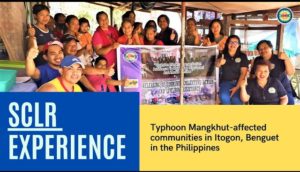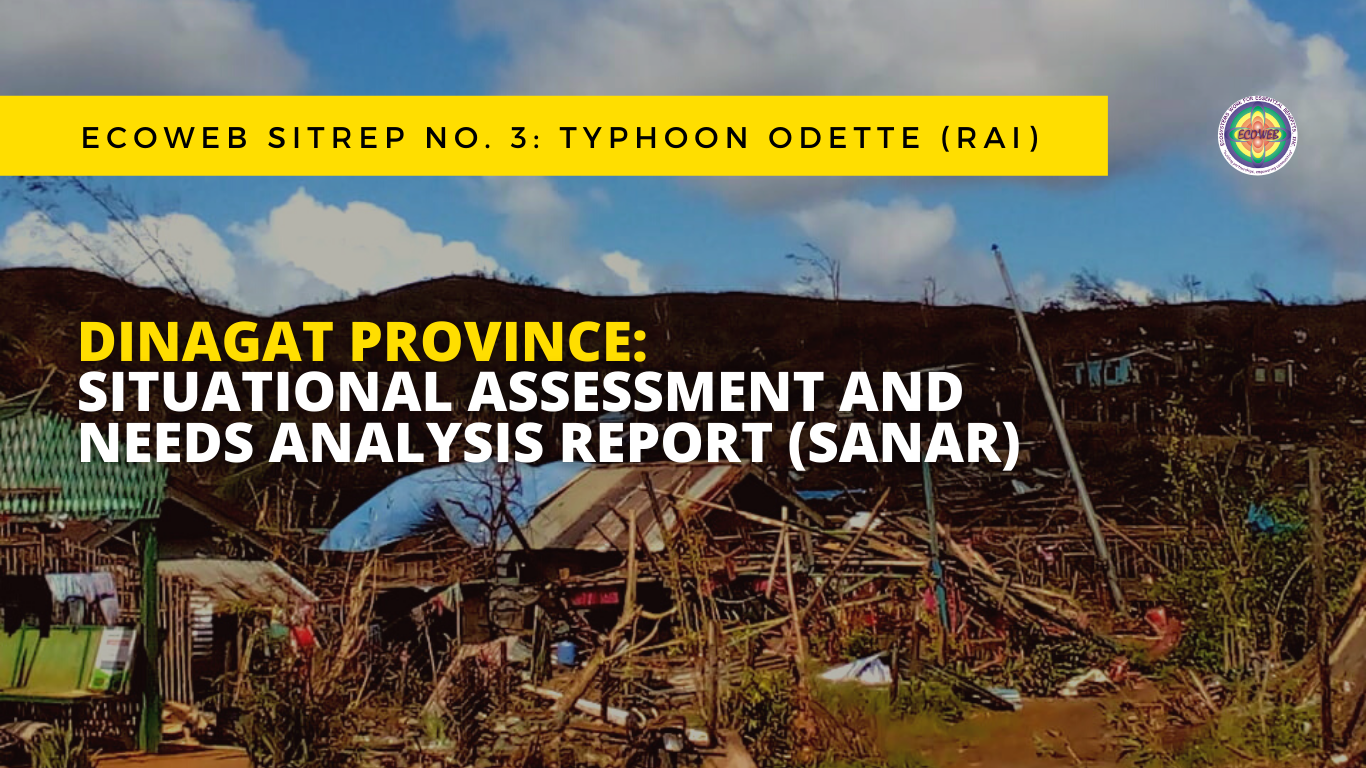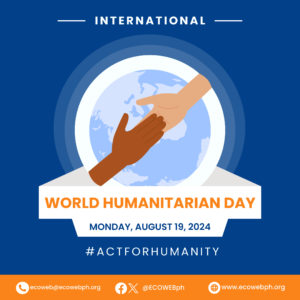The summit served as a critical platform for civil society organizations (CSOs) to advocate for the integration of poverty-sensitive, human rights-based approaches into the Asia-Pacific Ministerial Conference on Disaster Risk Reduction (APMCDRR) action plan.
At the 2024 Asia-Pacific Ministerial Conference on Disaster Risk Reduction (APMCDRR), held in Manila, ECOWEB’s presence underscored the need for a more inclusive and locally-led approach to disaster risk reduction (DRR), especially for marginalized and vulnerable communities. This critical intervention, co-led by ECOWEB Executive Director Regina Salvador-Antequisa as the Sectoral Representative for the Victims of Disasters and Calamities Sectoral Council, aligns with the broader call from civil society organizations (CSOs) and the basic sectors for a multi-faceted and justice-centered response to the increasing challenges posed by climate emergencies.
A Call for Action from the Basic Sectors and CSOs
The NAPC Basic Sectors and Civil Society DRRM Summit, initiated through the NAPC platform, was co-sponsored by ECOWEB, AWO International, the Center for Disaster Preparedness, and Oxfam. This collaborative effort brought together key stakeholders to push for more inclusive disaster risk reduction strategies and highlight the importance of locally-led solutions. The summit served as a critical platform for civil society organizations (CSOs) to advocate for the integration of poverty-sensitive, human rights-based approaches into the Asia-Pacific Ministerial Conference on Disaster Risk Reduction (APMCDRR) action plan.
During the summit, participants from 140 CSOs and organizations—including victims of disasters, women, Indigenous Peoples, youth, and other vulnerable groups—gathered to issue a strong appeal for the full implementation of the Sendai Framework Asia-Pacific Action Plan 2024-2027. This collective statement called for the APMCDRR leaders to prioritize climate justice, poverty reduction, gender equity, and social inclusion in all DRR efforts.
In her role as a sectoral leader, Regina Salvador-Antequisa joined others in co-facilitating the presentation of these collective appeals, urging the adoption of locally-led solutions. Along with representatives from civil society, she emphasized the need to ensure that CSOs, especially those from the most disaster-prone communities, have an active role in both implementing and monitoring the Sendai Framework Asia-Pacific Action Plan. She reinforced this urgency, stating, “Climate-induced disasters such as floods, typhoons, and droughts disproportionately affect these communities. These disasters push communities further into poverty, and the poor are often the first to be hit and the last to recover. The 14 Basic Sectors, through the leadership of the Victims of Disasters and Calamities Council collaborating through the platform provided by the National Anti-Poverty Commission, relentlessly pushed for the institutionalized mechanism of not only including but supporting the meaningful participation of the DRRM council at all levels of the government.”
In her role as a sectoral leader, Regina Salvador-Antequisa joined others in co-facilitating the presentation of these collective appeals, urging the adoption of locally-led solutions.
Bridging DRR and Poverty Reduction
The intervention at the APMCDRR highlighted the interconnectedness of disaster risk, poverty, and social vulnerabilities, particularly in marginalized rural communities. The summit’s statement emphasized that many disaster-prone areas face compounded risks due to conflict, poverty, and inequitable development projects. To effectively address these challenges, the plan must incorporate a human rights-based and poverty-sensitive approach in vulnerability assessments, disaster planning, and monitoring efforts.
ECOWEB’s work in Las Nieves, Agusan del Norte, where community-led disaster response and climate-smart interventions have been implemented through the Survivor Community-Led Crisis Response (SCLR) approach, serves as a practical example of the impact of sustainable and inclusive DRR initiatives. By incorporating ecologically sound livelihoods, ECOWEB has empowered vulnerable communities to strengthen their resilience while addressing poverty and environmental degradation.
Gender Equity, Disability, and Social Inclusion (GEDSI) in DRR
The collective advocacy from civil society and basic sectors emphasized the need for DRR strategies to be GEDSI-responsive, ensuring that gender equity, disability, and social inclusion are central to disaster recovery and resilience efforts. The statement also called for the establishment of a regional climate justice fund to support projects led by vulnerable communities, ensuring their unique capacities and needs are addressed.
One of the key recommendations was to improve early warning systems by making them accessible to low-literacy, low-income populations, and incorporating traditional and Indigenous knowledge alongside established science-based solutions.
Strengthening Civil Society’s Role in DRR
The summit’s declaration emphasized the essential role of civil society in amplifying community-led initiatives and ensuring transparent monitoring of the APMCDRR plan’s progress. Through collective action from various sectors, there was a strong push for the establishment of a functional, evidence-based monitoring system. This system would enable civil society organizations (CSOs) to provide regular updates on the status of disaster risk reduction plans to the United Nations. Such a framework aims to foster accountability, transparency, and collaboration among governments, development partners, and civil society.
A Declaration of Climate Emergency
Finally, the basic sectors and CSOs called on the Asia-Pacific Member States to declare a Climate Emergency, linking disaster risk reduction to broader global frameworks such as the Sustainable Development Goals (SDGs) and the ASEAN Framework Action Plan on Rural Development and Poverty Eradication. The declaration highlighted the urgency of addressing the systemic drivers of poverty and vulnerability to disaster risks, proposing that local communities be at the heart of DRR and climate change adaptation efforts.
ECOWEB’s Continuing Advocacy
ECOWEB’s participation at the APMCDRR highlights its commitment to supporting and amplifying the voices of marginalized communities in shaping disaster risk reduction strategies. By working alongside other civil society organizations and basic sectors, ECOWEB advocates for locally-led, inclusive solutions that address the root causes of vulnerability. The organization’s contributions reflect a collective effort to ensure that disaster preparedness, response, and recovery are equitable and sustainable, with communities playing an active role in driving the change they need. | Kin Barkly Tibang



